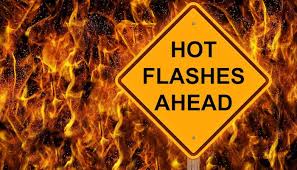Products You May Like


We’ve talked a lot about the new generation of socially aware consumers and their greater demand for transparency and social responsibility, so this concept probably needs no introduction. As a result of the increased awareness of global issues, Fair Trade certified products are gaining in popularity amongst contemporary buyers looking to support ethical businesses. While the term Fair Trade conjures images of small batch coffee beans, tea leaves, or chocolate, a large variety of products and business can be Fair Trade-certified, including alcoholic beverages. Here’s a look at the Fair Trade movement and its relation to alcohol.
Before we go any further, we have to ask ourselves, what exactly is Fair Trade? Simply put, it is “when producers in developing countries are paid a fair price for their work, by companies in developed countries,” according to the definition on Traidcraft’s website. While Fair Trade organisations (FTOs) and certification only emerged in the 1980s, its ideas go as far back as the 1940s. According to the World Fair Trade Organisation (WFTO) it began in the United States when a business called Ten Thousand Villages started purchasing needlework from small Puerto Rican artisans in 1946 and sold them back in the US. As years went by, the idea of supporting artisans and farmers in developing countries grew and a number of FTOs began to take form, eventually leading to a global network of like-minded organisations. These organisations helped promote the idea of Fair Trade and establish the Fair Trade Charter.


As more brands started to embrace Fair Trade and used it as a way to market their products to concerned consumers, certifications were established to ensure that such businesses actually contributed back to the societies they worked with. Nowadays as the demand for socially responsible and ethical products is on the rise, the Fair Trade label is a guarantee that consumers are doing their part to support a good cause.
But enough history. While the quintessential examples of Fair Trade products are coffee, tea, sugar and the like, the list is becoming increasingly diversified. According to a report by retail analyst Kantar, British consumers spent £86.9 million on Fair Trade alcohol products in 2017, making it one of the fastest-growing Fair Trade products.


Fair Trade alcoholic products started in 2009 with FAIR Drinks, a French spirit brand who made their mark with their vodka made from organic Fair Trade quinoa from a supplier in Bolivia. From Bolivia, this ethically sourced quinoa is taken to their distillery in the Cognac region of France where it is turned into their award-winning vodka by master distiller Philip Laclie. Since then, FAIR Drinks have expanded their range of products to include other beverages such as rum, gin and even kumquat and coffee liqueurs, all the while ensuring that they adhere to around 200 rules to retain their Fair Trade certification. These mainly involve ensuring that the farmers which supply the ingredients in their drinks are paid fair wages to cover production costs and build schools to educate their children.




Since FAIR Drinks entered the market, a number of other brands have attained Fair Trade certification. Sombra, for example, is making Fair Trade mezcal and adopting responsible practices such as distilling only organic agave, burning sustainable firewood, and incorporating solar power rather than animals to run its traditional stone mill. The brand is even using the leftover agave fibres to make adobe (mud) bricks which they are using to construct their first adobe house for the indigenous Mixe community.
Other producers of Fair Trade alcohols include Legado Distillery in Paraguay which distils rum using Fair Trade sugar and molasses, as well as the numerous vineyards across Chile and Argentina which have rich histories of cooperatives.


As we’ve established, Fair Trade is great for ensuring ethical practices which benefit the environment as well as less privileged societies. But then, if it’s such a great practice, why aren’t more brands looking to become certified? It boils down to two factors, cost and product classifications.
Attaining Fair Trade certification is no simple task. A lot of time and effort is taken to find suitable suppliers for ingredients and then invest in ethical and sustainable practices. Suppliers are also paid above the market rate as part of fair wages and businesses are also expected to give back to these communities in tangible ways which means higher costs of production. As a result, fair trade products are the most economically cost-effective. Bigger brands, are therefore unlikely to adopt such practices as it would mean less profits earned. The meticulous practices of micro-distilleries and vineyards however, are much more in line with Fair Trade requirements as they devote themselves to crafting limited runs of quality products.


Another reason has to do with the fact that not all crops can be certified as Fair Trade. Many types of grain such as wheat and barley, which are the main ingredients in beers and whiskies cannot be certified. Combined with the legal requirements which dictate how beer and whiskies must be produced, it makes it unlikely that we will ever see Fair Trade versions of these beverages. In fact, this is why FAIR Drinks started its journey with vodka as there aren’t any laws which control what can be used in its distillation.
To conclude, Fair Trade has come a long way since the 1940s. The list of Fair Trade products and businesses is constantly growing, even including wines and spirits. As we enter an age of social activism and equality for all, what better way to celebrate the spirit of Fair Trade’s pioneers then toasting them with a glass of ethically sourced and produced booze.
